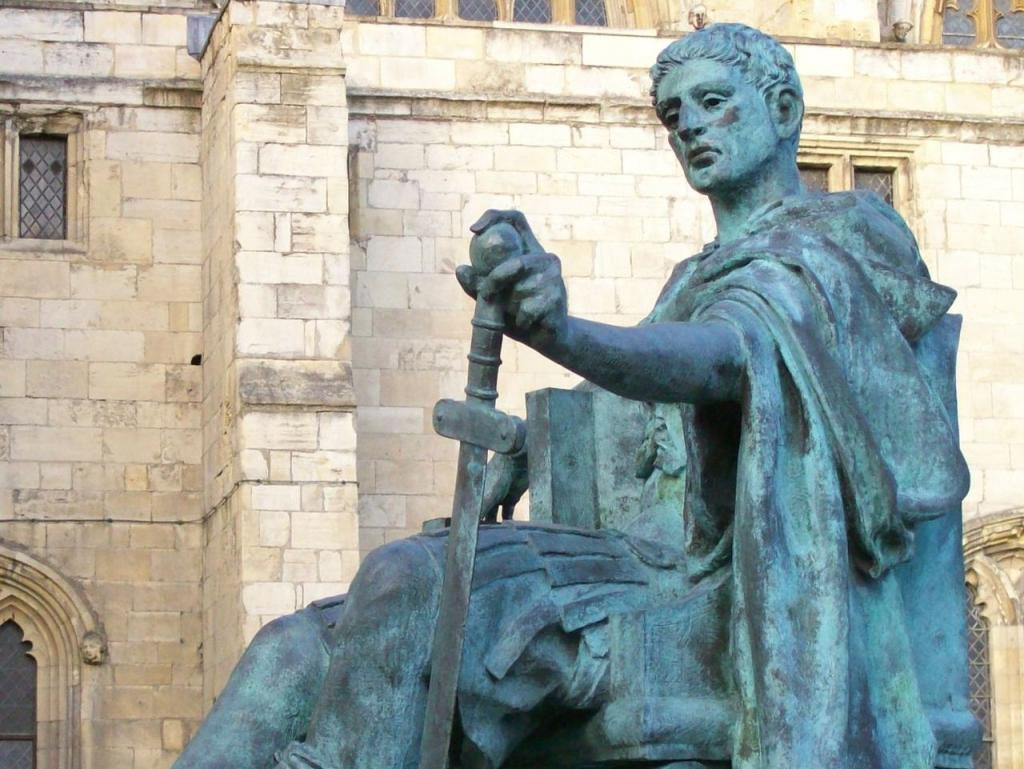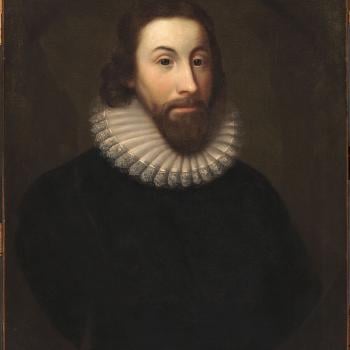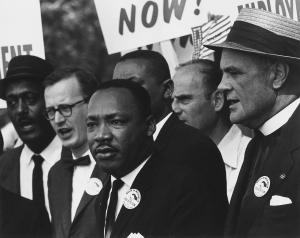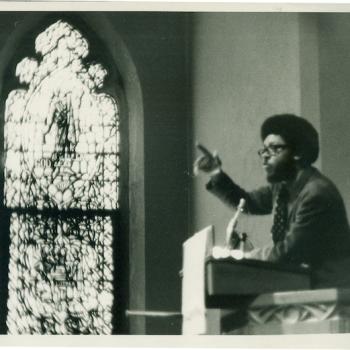
Throughout Christian history, many have struggled to understand government. What is government? What is its purpose? And what are the limitations of its political authority? Theologians, pastors, and rank-and-file Christians often cite passages like Romans 13:1-7 and 1 Peter 2:13-17. These passages offer clear descriptions of the Christian’s relationship to government, at least during Christianity’s very earliest days.
However, there is difficulty in relating biblical precepts to current contexts. The political possibilities available to us today, and I especially focus on democracies like the US, were unimaginable to primitive Christians. And as with all biblical interpretation, we must not treat the Bible like a cut-and-paste text, whereby we can cleanly apply it to modern times without having to translate and transpose.
This essay considers the Christian’s relationship to government in the context of a contemporary democracy like the US. How should Christians view those who govern? What are the limits of political authority? And how should Christians utilize and participate in political authority?
To respond to these questions, I draw from an unlikely era of Christian history. We shall examine and reflect on the story of the Church, using the 313 CE Edict of Milan as our center. This edict ended the Roman persecution of Christians and expanded the bounds of religious tolerance in the Roman Empire.
Political Authority and Oppression
One of the most pressing issues that Christians face today is the problem of political authority and oppression. Romans 13:1-7 and 1 Peter 2:13-17 encourage Christians to be subject to governing authorities. Both Paul and Peter tell their audiences that government is meant to punish wrongdoing and encourage doing right.
Thus, oppressive governments constitute a problem. They are neither punishing wrong nor encouraging good, but are punishing without cause. The Roman persecution of the early Church is a prime manifestation of this. Even Peter and Paul were martyred under the empire that they instructed others to be subject to.
We find a solution to this problem in what the early Christians did. They accepted martyrdom when faced with it. When authorities confronted Peter and the apostles for preaching the Gospel, they responded, saying, “We must obey God rather than men” (Acts 5:29, ESV). But even then, the apostles accepted the punishments that came with going against authorities. This response continued from Nero’s persecution of Christians in 64, and lasted sporadically until the last major persecution under Diocletian in 303. There was no resistance. There was civil disobedience. But there was no revolution.
So long as Roman authorities had qualms with their religion, Christians accepted persecution. They often thanked God for it, since Jesus promised persecution to his followers (Matthew 5:10-12). However, Christians did not seek persecution out. The Martyrdom of Polycarp, an ancient document written around 156 CE, tells us that doing so was discouraged. And we recall that Paul cautioned the Roman church, “If possible, so far as it depends on you, live peaceably with all” (Romans 12:18). Whatever wrath Rome visited upon the Christians was undeserved and unprovoked.
Changing the Terms of Political Authority
But this state of affairs did not last forever. In 312 CE, the Roman Emperor Constantine converted to Christianity. While the Church had grown into a distinct and relatively influential religious community, it did not yet have a powerful ruler within its ranks. Now, the head of the world’s superpower was Christian (though, for many evangelicals, the authenticity of Constantine’s faith is often doubted).
With a Christian in power, the terms of political authority began to change. In 313, Constantine and the emperor of the eastern part of the empire, Licinius, authored an edict effectively safeguarding Christians for good. No longer would persecution ravage Christians in the Roman Empire after the Edict of Milan.
Rome had already been tolerant of religious difference, so long as subjects partook in the imperial cultus, worshipping the emperor and the empire’s gods. Such participation was considered crucial to the prosperity of Rome. This is quite similar to how many view America and Christianity today, such that Christianity has itself become an imperial cult whereby obedience to “Christian values” guarantees prosperity, while disobedience threatens national destruction.
Jews were an exception to this rule. They did not worship the emperor or the Roman gods. But they won relative toleration thanks to the antiquity (long-lastingness) of their tradition. Their disinterest in converting others and their public respect towards other religions also afforded them tolerance. [1] Thus, while the Edict of Milan did not establish religious tolerance, it institutionally widened the sphere of tolerance to include Christians, who also rejected the imperial cult yet placed great emphasis on proselytism.
Political Authority in Democracy
The very idea of a democratic society is that political authority, or at least political power (in the sense of political capacity), is to be afforded to the people. Thus, the people are granted rights. These rights include the right to participate in decision making. Or, the right to elect representatives, as in a republic.
While the Christian tradition generally disapproves of revolution, Christian history shows that changing the terms of political authority can be a good, especially in the face of oppression. Oppression does not mean that the oppressed are morally perfect. It means that governments and earthly powers are immorally and unjustly overstepping their God-given role. In democracies, Christians are afforded political power that early Christians could not have imagined. Political capacity comes with moral obligation to use it for good. The terms of political authority can be changed even while Christians subject themselves to the current authorities.
However, a most important qualification must be made. Not all who claim political authority should be submitted to. Augustine in his City of God elaborates on the Christian definition of government. He talks much of temporal justice. Temporal justice is different than yet derived from God’s perfect, divine justice. It is a degree of justice which societies are universally obliged to establish.
Without this degree of justice, Augustine asks, “Justice being taken away, then, what are kingdoms but great robberies?” David McIlroy applies this to law:
a system which allows chattel slavery is a legal system for those who are not enslaved but is simply a regime of organised violence for those who are enslaved. As such, the unjust laws have no moral authority over those who are enslaved. Offering them no benefits and no protection against violence, they have no reason to obey those laws.
This is applicable to many other political orders predicated on injustice. And Augustine is talking about more than law. He is also talking about individuals with political authority. This understanding is not unique to Augustine. Ancients have long distinguished between kings and tyrants, just as moderns today distinguish between democracy and dictatorship, or freedom and fascism.
Conclusion
Immeasurably more could be said on the Christian’s relationship with political authority. But for now, these lessons shall suffice as guideposts. Christians are taught to accept the consequences for breaking laws, and to accept unprovoked and undeserved persecution. However, Christians through civil society and their personal spheres of influence are to live at peace with all, as much as is possible. And given the amount of political agency afforded individuals in liberal democracies, Christians must always choose whether to change the terms of political authority and to do so for their own good and the good of their neighbors.
Christians should constantly examine their societies, looking for injustices large and small. Are injustices being committed against the unborn, women, people of color, religious minorities, queer folks, the poor, fellow Christians, foreigners, migrants, renters, the homeless, or ideological outgroups? And how can Christians leverage political authority to ameliorate such injustices and help their neighbors?
Furthermore, Christians must always be in conversation with their civic neighbors. It is through conversation that people can determine whether the necessary degree of temporal justice is present in society. If not, that government has become not a government, but a band of robbers. Christians are taught to subject themselves to governing authorities. They are not taught to subject themselves to robbers.
Notes
1. Henry Chadwick, The Early Church (Pelican, 1967), 25 and 69.













